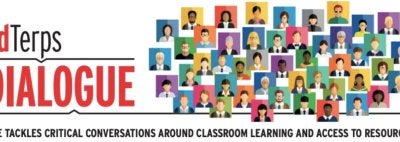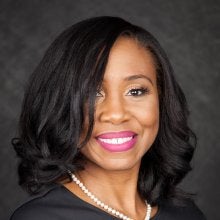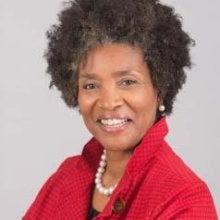

Endeavors: EdTerps Dialogue
The COVID pandemic led to widespread development of creative solutions in administering traditional classroom education. The pandemic revealed vast discrepancies in access to educational resources between students from underserved communities and their counterparts. Gaps in internet access, lack of technology and the skills to use the technology, and a history of underfunding has led to a “lost year” for many disadvantaged students.
The College of Education (COE) believes that universities should operate in service to their communities. For over 100 years, the COE has provided evidence-based knowledge to educators, school leaders, and parents to help them teach and nurture their students to success. In the fall of 2020, the COE launched the #EdTerpsDialogue series to provide real-time evidenced-based content to educators, school leaders, and parents and to address the gaps in education that were exacerbated as a result of the pandemic. #EdTerpsDialogue is a series of panels featuring educators, administrators, researchers, parents, and community leaders who engage in discussions around topics of interest within the education sector.
“UMD is both a research-intensive and land grant institution. The original mission of land grant institutions was to extend education and information to the public per the Morrill LandGrant Acts. While we have evolved in the methods that we utilize to engage audiences, we continue to advance our local and global communities through research and

Dr. Terrell Shockley wanted to provide a convenient yet dynamic platform for the local community to access the resources the college has to offer. She wanted to engage stakeholders via professional development and leverage her resources as a higher education faculty member to disseminate knowledge.
“Community members are sometimes intimidated by universities and unclear about how to access the available resources. We knew there were tremendous losses and that they were multifaceted; however, we wanted to find ways to take advantage of the opportunities that emerged from the unplanned online environment. There were many educators and families who were looking for colleges of education to answer questions about this new environment that the pandemic laid bare. We aimed to create spaces to collaborate and reinforce our support,” said Dr. Terrell Shockley. “It was timely and critical to center students, educators, and parents in addressing the issues that were arising as a result of COVID-19.”
“This series is important because every aspect of our effectiveness as professional colleagues, parents, and community members is enhanced when we can expand our own knowledge and understanding of the key issues shaping the educational landscape,” said COE Professor of Higher Education Dr. Sharon Fries-Britt.
The goal of #EdTerpsDialogue is to share and exchange information, offer resources and tools around important classroom topics such as digital resources, accessibility, and instructional technology, and provide support to parents who have to administer at-home learning for the first time. The #EdTerpsDialogue panelists include notable professionals who are considered experts in their field.
“We featured presenters from different counties around the state of Maryland, and from various concentrations within academia as well as leaders who serve PK-12 and those who study adult learners,” said Dr. Terrell Shockley. “I know these people, I respect their work, and I’ve witnessed their impact in local schools, education organizations, and communities.”
The series has tackled a number of critical topics including access to technology in PK-12 education, anti-racist practices in PK-12 schools and communities, and personalized learning and accommodating student differences in online platforms to name a few.
“People are invested in tackling bias and organizing around topics that impact marginalized communities, particularly since under-served groups continued to face the most hardships as a result of the pandemic,” said Dr. Terrell Shockley. “Our participants have all noted the timeliness of the topics and stated their appreciation for the opportunity to ask questions and receive strategies in real-time that are relevant with respect to issues occuring in their online classrooms.”

“I have been particularly pleased with the space that we have created to dialogue about challenging topics of systemic racism, equity, and justice and how these issues impact all aspects of our effectiveness from teaching to technology,” said Dr. Fries-Britt. “The need to learn and engage with individuals on difficult topics could not be more relevant in our society today. I am proud that the College has engaged in this work and deeply appreciate the leadership of Dr. Ebony Terrell Shockley and others who are coordinating these opportunities to learn and interact as a community.”
The series will continue in the fall with new relevant topics and expert panelists. “I would love for our alumni to continue to lead dialogues in the fall and the spring,” said Dr. Terrell Shockley. “Because our alumni are in spaces that span all areas of education, we invite alumni who are interested in sharing their knowledge, research, or work experiences to contact us so that we can collaborate on topics and resources that can benefit our extended community.”



